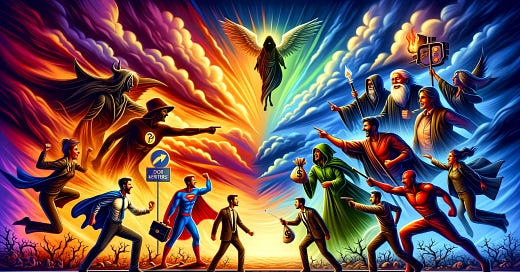Shadows on the Road to Greatness: The Anti-Heroes We Must Overcome
Unmasking the Pessimist, The Naysayer, and Their Cohorts in Our Quest for Professional and Personal Fulfillment
In an era where the pursuit of growth, positivity, and innovation is more critical than ever, the quintet of superheroes I previously brought to light—The Encourager, The Mentor, The Dreamer, The Builder, and The Systems Thinker—stand as beacons of hope and catalysts for change in both our personal lives and professional endeavors. They serve as the gui…
Keep reading with a 7-day free trial
Subscribe to Happiness Practices with Phil Gerbyshak to keep reading this post and get 7 days of free access to the full post archives.




